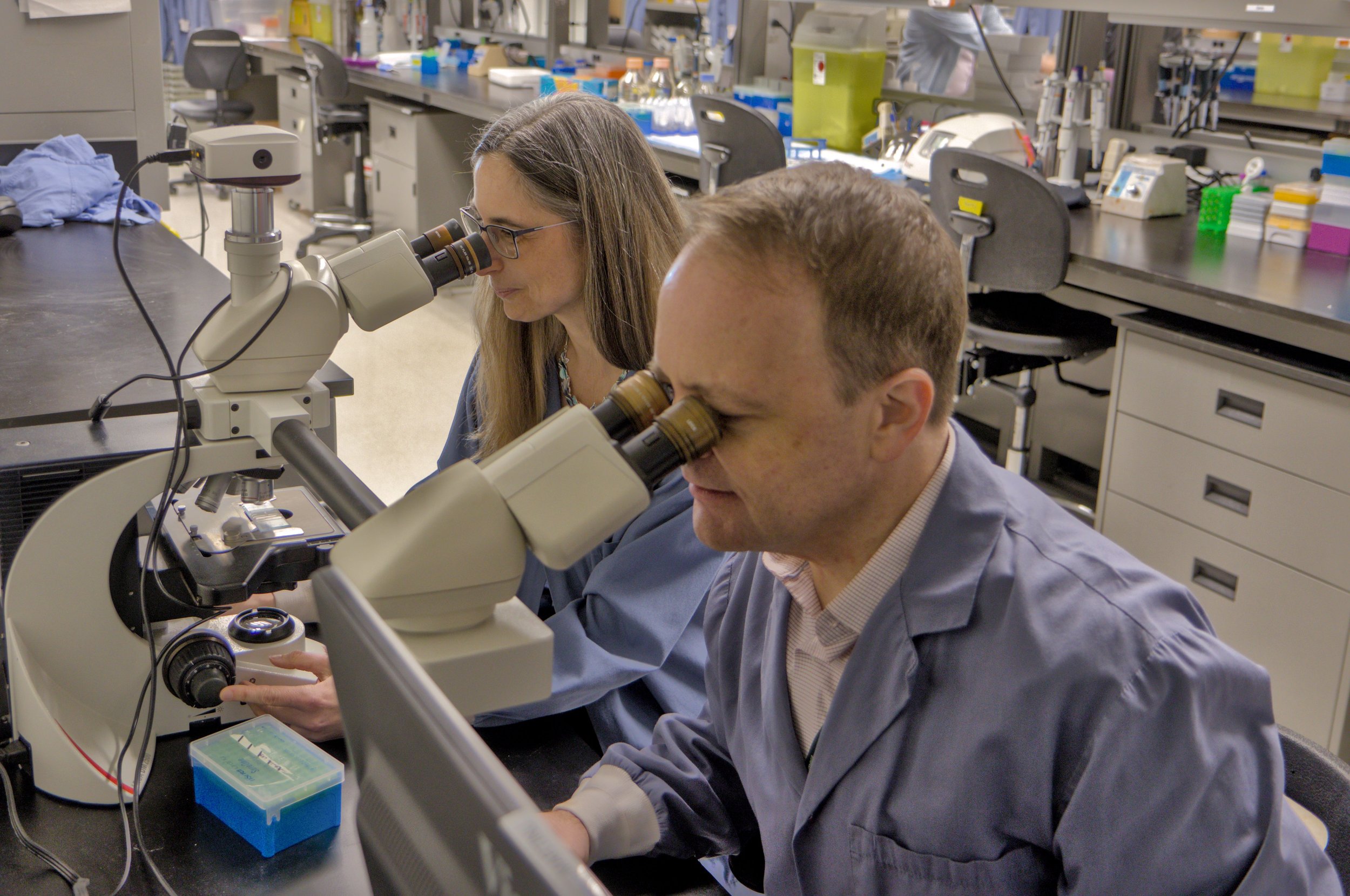Understanding CLAD
Chronic Lung Allograft Dysfunction (CLAD) is the leading cause of long-term graft failure following lung transplantation. It represents a spectrum of chronic rejection processes in which the immune system, despite initial compatibility, gradually identifies the transplanted lung as foreign. This triggers immune responses that lead to inflammation, tissue remodeling, and irreversible damage
Understanding how the immune system contributes to CLAD, including the roles of T cells, B cells, and other immune mediators, is crucial to developing therapies that can prevent or mitigate this devastating complication. Our research aims to shed light on these mechanisms and pave the way for new interventions to improve the lives of lung transplant recipients.
CLAD Team Research Interests
Juvet Lab
Our overarching goal is to elucidate endogenous immune regulatory control mechanisms in order to make transplanted lungs last a lifetime.
-
Investigating the role of regulatory T cells (Tregs) in modulating immune responses to promote lung transplant acceptance
Use of innate immune-augmented mouse lung transplant models established by my lab to study the B cell and myeloid cell drivers of chronic rejection and translating these findings to human samples
-
Techniques include scRNAseq, CITE-Seq, flow cytometry, in vitro immunology and novel humanized animal models
Profiling effector and regulatory T cell populations in the peripheral blood and lung tissue of lung transplant patients to identify markers of rejection and tolerance
Examining the role of B cell dependent immune aggregates in driving local inflammation and their association with CLAD progression
Investigating humoral autoimmunity mechanisms and biomarkers of CLAD
Studying the interactions between alveolar macrophages and other immune cells in lung transplant biopsies during acute and chronic rejection phases
-
Engineering regulatory T cells to enhance their stability, function, and therapeutic potential in promoting lung transplant tolerance
Developing methods to deliver engineered immune cells or biologics to the lung allograft to minimize rejection and inflammation
Approaches include the use of humanized mouse models, in vitro immunology, and use of human lungs unsuitable for transplantation
Martinu Lab
Our overarching goal is to investigate mechanisms of CLAD towards identification of new diagnostic and therapeutic approaches for lung transplant recipients.
-
Utilizing multi-omics approaches and in-vitro cell culture systems to study immune pathways, epithelial injury, and fibrosis
Applying single-cell transcriptomics and proteomics to human-derived lung samples to dissect CLAD pathogenesis
Using mouse models of CLAD to elucidate mechanisms
-
Using single-cell RNA-sequencing, imaging mass cytometry, and cell culture methods to understand how specific cell subsets contribute to immune-mediated injury and fibrosis in CLAD
Profiling epithelial cell gene expression and interactions with immune cells to uncover novel therapeutic targets
Investigating the role of macrophage-derived angiotensin-II related proteins in CLAD
Studying the interactions between epithelial cells and lymphocytes and the role of TRAIL-mediated epithelial cell apoptosis in CLAD pathogenesis
-
Understanding how the constant exposure of the lung to external stimuli likely may explain the high propensity for inflammation and rejection after lung transplantation
Elucidating the role of Th17 cells and IL-17 signaling in immune pathways triggered by innate immune stimuli
Studying aspiration, LPS, the lung microbiome as triggers of inflammation and fibrosis in CLAD
-
Leveraging laboratory data to identify new bronchoscopy-based biomarkers and therapeutic targets for CLAD identification, prediction, prevention and treatment




